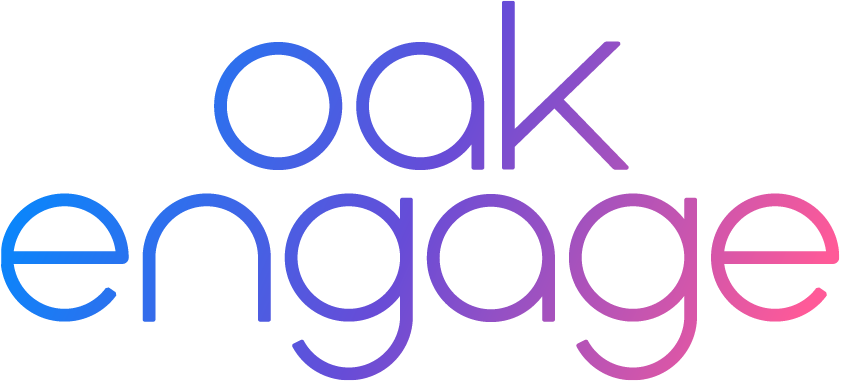International Women's Day is a global celebration which raises awareness of women's social, economic, cultural, and political achievements. This year's theme is "Embrace Equity" and IWD wants to get the world talking about why equal opportunities aren’t enough and to highlight that people start from different places and that true inclusion and belonging requires equitable action.
In this article, we’ll be exploring how to embrace equity in the workplace as well as celebrating how women have had a positive impact in the workplace…
The best place to start with driving awareness around equity in the workplace is encouraging and supporting employees to learn what it is and why it’s so important. This should be coming from leadership as it’s incredibly important they set the tone and lead by example. Share case studies, invite experts in to talk to employees and run workshops frequently so employees can start putting everything into practice each day.
Evaluate workplace equity
How equitable is your workplace? Is it accommodating for those with disabilities? Do you have financial and incentive based rewards systems in place? Is your pay equitable? Do you have a diverse workforce made up of different genders, backgrounds, religions, ethnicities and sexual orientations? Assess where your weaknesses are and see how you can make improvements. If you’re lacking in metrics, consider conducting an employee engagement survey on equity to see what your workforce thinks and how they think you could be improving. Here are a couple of things to include and measure:
- The percentage of staff who believe they are treated fairly and with respect
- The percentage of staff who feel their compensation is fair for their role, experience and industry standards
- The percentage of women, POC, LGBTQ+ employees, veterans, disabled and other characteristics that make up a diverse employee base, within your workforce
- Whether your workforce are happy with Diversity, Equity and Inclusion (DEI) efforts or if improvements need to be made (leaving a comment box on this one is great for hearing feedback)
Prioritise wage equality
Pay might be one of the first things that comes to mind when people think of equity in the workplace and ensuring equal pay can be one of the best ways to prioritise equity in the workplace.
A good first step in tackling the wage gap is by trying to remove any stigma around discussing salary in the workplace. Colleagues should be able to share how much they make and compare salaries to others in similar roles to see if everyone is being paid fairly or based on the criteria.
Share equity progress and goals
Take a look at where you need to make improvements in your business, is your workforce heavily male dominated? Make a pledge to hire more women in the coming year.
Make your commitments to equity public and share your intentions. Making a public commitment to becoming more equitable allows your business to be held accountable and can really encourage positive steps in the right direction.
Prioritise representation amongst the workforce
Corporations identified as more diverse and inclusive are 35% more likely to outperform their competitors (McKinsey) and diverse teams are 87% better at making decisions (People Management).
Who makes up your workforce? Take a look at your workplace demographics… are your people made up of different religions, ethnicities, genders, sexual orientations? Do you have neurodiverse employees? Do you have women and people of colour in leadership positions?
Look at your workplace data to gain a clear understanding and start to see where you can make improvements.
Update hiring practices
62% of people would reject a job offer if the organisation didn’t support an inclusive culture (Monster). Having an inclusive culture starts with hiring, in particular hiring for diversity.
So how do you bring in your talent? Where do you post your job positions? Do you have a diverse set of people involved in the hiring process? Is your language neutral? There are a whole host of things to consider when hiring for diversity, from making sure your careers page is accessible to all, crafting job descriptions, interview planning, having inclusive benefits and more. Look at each step of the hiring process and start making improvements where possible.
Assess onboarding process
Onboarding is such a crucial part of an employees lifecycle and is their first glance into the world of work within your company. It’s where new workers get introduced to your company’s mission, values and culture and is a huge part of building an inclusive workforce.
Consider creating a handbook on your Diversity and Inclusion policies, hosting mandatory DEI training sessions as part of the onboarding process and inform new employees of any support groups to connect new hires with other employees in the business.
Promote inclusive leadership
Company culture is set by leadership teams and research shows that inclusive leaders have better performing and highly engaged teams. Leaders can promote inclusive leadership by committing to diversity and inclusion, work to celebrate everyone’s achievements and talent, demonstrate an open mindset and curiosity about employees, show attentiveness to employees' cultures and empower others to collaborate whilst paying attention to diversity of thinking and psychological safety.
International Women’s Day - The perfect time to celebrate women in the workplace
Nearly 80% of workers report that they want to work for a company that values diversity, equity, inclusion, and belonging (DEIB). In the past couple of years, a focus on a more equitable workplace has become more important for many organisations with 40% of the workers in the survey cited above report their company has made DEIB more of a priority. So how do women help improve workplaces?
- Women bring unique perspectives to the workplace: Women bring so much to the table, from different experiences, skills, and perspectives, having women in the workplace can lead to more creative problem-solving, decision-making and conflict resolution. For example, studies have shown that companies with more women on their boards of directors are more likely to invest in research and development, leading to more innovative products and services.
- Women contribute to a positive work environment: Women often have empathetic, collaborative, and communicative qualities which can lead to great teamwork and harmonious workplace relationships. Women are big advocates for work-life balance and family-friendly policies so much so that companies with more women in leadership positions have higher employee engagement and lower turnover rates.
- Women can serve as role models and mentors for other women: Women who have mentors are more likely to advance in their careers and achieve greater job satisfaction. When women see other women in leadership positions, it’s a benchmark of inspiration. Do you have any leaders or women who have inspired you?
We asked the employees of Oak some international women's day related questions and here are some of our favourite answers…
Who is a woman that you find inspirational?
Emma, Head of Marketing & PR: “My inspirational woman is Betty White, god rest her soul. She was an icon, a comedy legend but not only that she was a feminist, an activist and a civil rights supporter. She was serious about condemning racism and homophobia and really supported the LGBTQ+ rights movement. If that’s not the definition of a female role model I don’t know what is.”
If you could have dinner with three inspirational women, who would they be and why?
Katy, Marketing Operations Executive: “Rosa Parks because I’d love to learn about her experiences and history, Serena Williams because I’m into sport and her career has been amazing and Rosie Ramsay because she’d be great fun and she’s representing the North East.”
Stephen, Content Marketing Specialist: “Emeline Pankhurst, it’d be really interesting to hear about the challenges she faced in a time where women didn’t really have any rights. Alex Scott, she’s a really good football presenter and has inspired a lot of women to get involved in sport and in Qatar she stood up for a lot of human rights issues where a lot of men didn’t and Saffiyah Khan, she toured with my favourite band the specials so I think she’d have some good stories to tell.”
Why is international women’s day important to you?
Kara, Compliance Manager: “I think it’s a great opportunity to be mindful of the successes and achievements of women across the globe and a chance to educate future generations about the importance of women’s rights”.
Do you have an inspirational woman in your life?
Josh, Demand Generation Manager: “So the biggest inspirational woman in my life is my mum, because she was one of the first police officers in County Durham to go back to work after pregnancy which is pretty cool, it shows determination to be a mother and also how she was able to pursue a professional career and all the way back then that’s a testament to her as a person.
How to celebrate your employees on International Women’s Day
Diversity and inclusion are critical for a thriving workplace and women bring a whole host of unique perspectives, skills, and experiences to the workplace. Let’s use this International Women's Day to make a pledge to challenge gender bias and inequality, prioritise equity and celebrate womens’ everywhere, not just the workplace. Want some ideas for things to do on March 8th? We have a few ideas:
- Decorate the building - think balloons, banners, bunting, posters of inspirational women to get people feeling excited and inspired.
- Invite a motivational speaker into the office - women in tech, women’s charities, female CEOs, anyone inspirational you can think of who might share their experiences and act as a source of inspiration.
- Have a lunch or coffee hour to celebrate your female employees - encourage staff to share achievements and special stories that they’re proud of.
- Fundraise for a women’s charity – vote for a charity and organise an activity to raise money for your chosen charity, whether it’s a bake sale, a raffle or even donating items, it’s a perfect time to give back.


